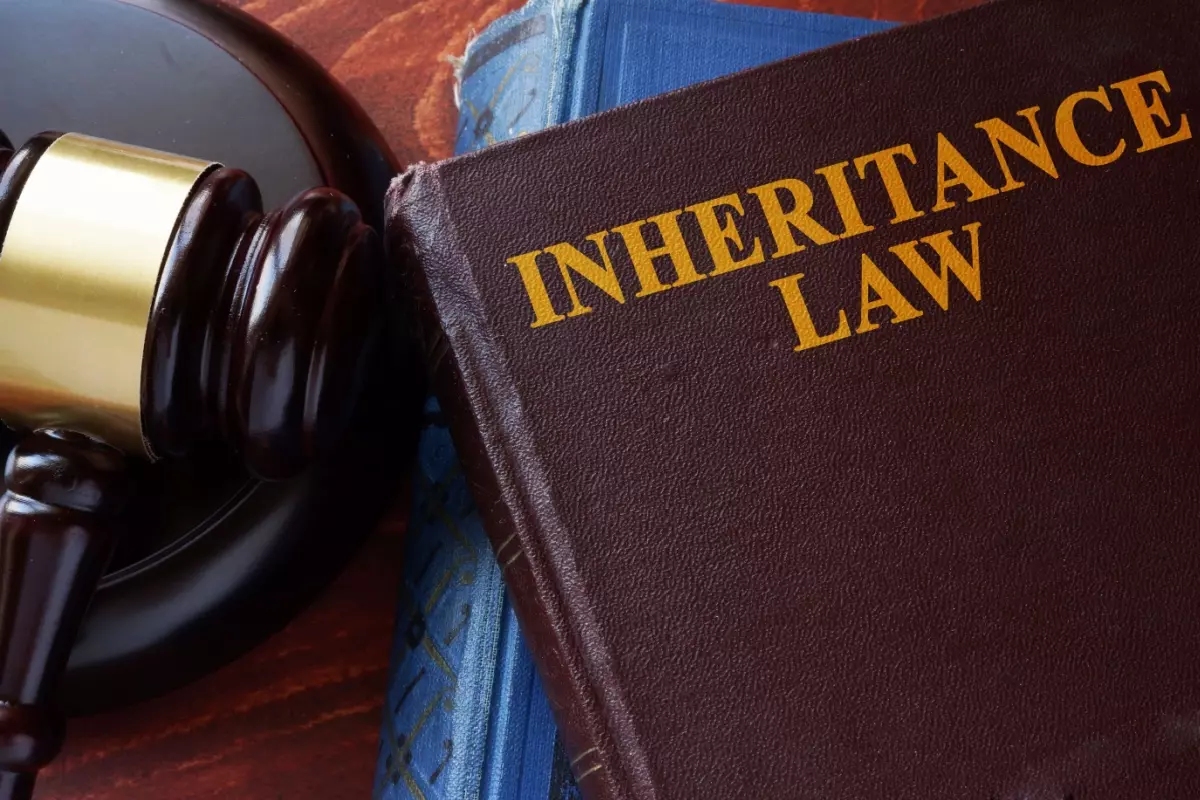Selling inherited property is not easy. That’s because most people who inherit a house aren’t real estate professionals. In fact, from processing probate to tallying taxes, the entire experience can be quite overwhelming.
Take a breath. We’re here to help. Our guide will give you the necessary knowledge to get the sale done and move on with your life.
Chances are you aren’t familiar with the legal and financial implications of inheriting and selling inherited property. That’s okay. Few are.

You should know that there are many hoops to jump through. Let’s start with the first hoop.
You might be wondering how one even inherits a house in the first place. It’s usually through one of the following scenarios:
Probate is the legal term for what happens when you inherit a property. It includes will validation and estate distribution, as well as settling debts and taxes. Here are the steps.
If a mortgage has not been fully paid off, this loan remains attached to the inherited property that you were planning on selling. A lien is a legal claim for unpaid debts, which may include things like contractor’s fees and property taxes. Similar to a mortgage, a lien must be resolved before you can sell an inherited house.
Since you’re the heir, you’d likely be expected to pay off both before listing on the market. To understand the payment roadmap, you can seek professional help from mortgage lenders like Wells Fargo or Bank of America. These lenders can help you come up with a settlement process.
The ways in which you inherit property will likely influence the sale itself. If you inherit it through a will or are appointed the property through state law, then your estate is subject to the probate process. However, if the property automatically transfers to other owners or beneficiaries, then bypassing the probate is possible. With no probate, the timeline of the sale will be much shorter.
Note: Probate laws vary from state to state. Please check your state regulations for more personalized information when selling a house you inherited. For example, California Courts share information specific to property inheritance in California.
Maybe you know this already, but taxes can affect the net proceeds you get from your sale. But if you need a refresher on the implications of tax, let’s first start with the types:
1. Inheritance tax is the tax that you might have to pay if you inherit a house or estate from someone else. This type of tax is only imposed in Pennsylvania, Iowa, Kentucky, Maryland, Nebraska, and New Jersey.
2. Estate tax applies to money, property, and belongings. Before an inherited house is transferred to heirs, the estate tax is usually deducted from the total value. Note: Federal estate tax only applies to properties that exceed $13.61 million as of 2024.
3. Capital gains tax is the tax that applies after you sell the property. It is based on the profit of the sale, which is basically the difference between the property’s base price and the money you make from the sale.
Before proceeding with the sale of inherited property, you should collect all required documents. It’ll help the smooth transition and will make the process easier, as you’ll be covering all bases. Speaking of, here are the documents you’ll likely need:
If a mortgage has not been fully paid off, this loan remains attached to the inherited property that you were planning on selling. A lien is a legal claim for unpaid debts, which may include things like contractor’s fees and property taxes. Similar to a mortgage, a lien must be resolved before you can sell an inherited house.

Since you’re the heir, you’d likely be expected to pay off both before listing on the market. To understand the payment roadmap, you can seek professional help from mortgage lenders like Wells Fargo or Bank of America. These lenders can help you come up with a settlement process.
Both inspections and appraisals are key factors in determining the value of your property. Even if you have a specific number in mind, these processes will help set a realistic price tag on your inherited property. An inspection can also reveal any potential problems with the property that flew under the radar.
What do these processes look like up close? Let’s take a look.
Note: If the property is being sold to pay off an outstanding mortgage, a lender is likely to use this report to make sure that the sale price covers the loan amount.
Even though we covered this briefly in the inspection section, we believe that renovations deserve a closer look. Why? Inspection reports vary, and an heir might not always know if renovations are really necessary. You may even want to finance a home renovation if it’ll make things easier on your waller. Let’s first look at a case where renovations may be required.
Issues like faulty wiring, foundational cracks, and fire hazards pose a serious safety concern for both owners and buyers. In this case, renovations will likely be required by law before you sell the inherited property.

Maybe your inspection found problems that do not seem as dire as the safety hazards. Does that mean a renovation can be avoided? Well, it won’t be as strictly insisted upon. However, the report will still include these issues.
You might encounter instances where a buyer lists certain renovations as a condition for the sale. Not carrying out renovations, in this case, may result in losing the buyer or selling an inherited property for a lower price.
Modernizing or updating a property can boost market value. A newly-renovated apartment not only looks presentable, but a real estate agent can actually use it as a part of their pitch. You may want to consider:
1. Modernizing bathrooms and showers
2. Updating kitchens with new equipment and dishware
3. Putting in new flooring
4. Freshly painting walls and exteriors
5. Fixing windows
6. Power washing your house
7. Improving your garden and landscape
8. Applying Roof Fixes
Can you sell an inherited property all on your own? Absolutely. However, professional help is usually advised, especially if it is your first property sale. They bring the expertise and can help alleviate any anxiety you may feel.
A good agent usually comes well recommended. You can ask family or friends for referrals, or you can search for real estate agents in your area online. Feel free to shop around and interview a few agents before choosing the one who works for you.
Note: Make sure this real estate agent is licensed and has experience with selling inherited properties.
| Pros | Cons |
| Agent takes over ads and property viewings | Less control over the sales process |
| Agent brings in negotiation skills (can be done on your behalf) | Commission fees cost around 5% to 6% of the sales price |
| Agent handles some of the paperwork |
Once you’ve got all your ducks in a row, it is time for the sale. The steps usually go like this:
Being prepared ahead of time will make selling an inherited house much smoother. When you understand the legal and tax implications, you can gather all the necessary documents and decide whether to renovate. Discussing the sale with a real estate agent is highly recommended.
You may find yourself with questions about the timeline, process, and available options when selling an inherited property. Here are some common questions to help ease the process of selling inherited real estate.
There usually is no time limit for selling inherited property, but the probate process must be completed before you can begin.
If you inherit your house with your siblings, you can buy out each other’s shares, split any proceeds made from the property’s sale, or rent it out and share the income. Regardless of what you decide, it is strongly encouraged to cooperate with your siblings and agree on which direction to pursue.
If you are considering selling a share of an inherited property, you’ll need the other co-owners to agree. If they do agree, the property can be sold entirely with the proceeds divided. You can also sell your share to another co-owner or an outside buyer, but this may require a legal partition.